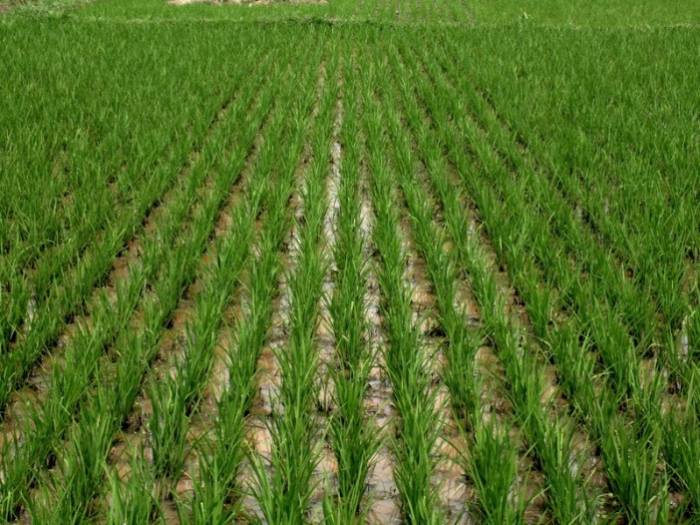
Indications have emerged that Nigeria’s annual agriculture output at 1.3 per cent is not insufficient to meet national food and raw materials demands.
This was the submission of the Chairman, Board of Directors, Sterling Bank Plc, Mr Asue Ighodalo, at the 4th Agriculture Summit Africa (ASA) 2021 organised by Sterling Bank.
The event held several panel discussions aimed at discovering practical solutions to the region’s unique challenges.
It also aimed at facilitating transactions between willing investors and potentially profitable agric-focused ventures and highlighting opportunities available in the sector.
The summit with the theme: “Building the New Agro Order” in Lagos noted that it was unacceptable that Nigeria and Africa at large should suffer food and raw materials shortages in the midst of fertile and arable lands.
According to Ighodalo, “We believe that it is an unacceptable and an ironic paradox to lack, have raw materials shortages and have food insecurity in the midst of so much fertile and arable lands across Africa.
“In the last three years, our Bank has paid attention to and concentrated resources on the health, agriculture, renewable energy, education and transportation sectors. These when put together represent the heart of Sterling, and right in the middle of our strategy is the agriculture sector to us.
“ASA has become more than just a summit but one of the resources of providing powerful suggestions to drive real inclusive economic growth in Africa, create employment, reduce poverty and provide a strong base for our manufacturing sector.
“A lot has been said about agriculture as a economic growth driver and wealth creation with the continued effects of the pandemic which is disrupting supply chains, increasing market volatility, pressing the capacity for effective demand and affecting production and overall economic outlook for the continent appears bleak.
“With millions at risk of being deprived of their means of livelihoods occassioning major concerns around food security, with an estimated population of over 200 million growing at an annual rate of three per cent, regardless of recent interventions, agricultural productivity in Nigeria growing at about 1.3 per cent is insufficient to meet our food and raw materials demand.”
Ighodalo noted that agriculture output suffered from low yields per hectare due to shortages in and quality of inputs, changes in climate among others.
“Consequently, our agriculture deficit continue to widen despite government interventions, irrespective, a wide range of opportunities abound.
“When we started ASA 4 years ago, we conceived it as a veritable advocacy platform to provide solutions towards rebuilding and transforming our agriculture sector into a resilient growth driver.
“Sterling Bank is committed to changing the narrative in the agriculture sector, in catalysing revenue boost growth. The developed world is in the middle of the 4th industrial revolution and Africa is still way behind,” he said.
The Group Managing Director/Chief Executive Officer, Saro Africa, Mr Rasheed Sarumi, hinted that Nigeria was faced with numerous challenges but technological innovations would transform these challenges to smart capital.
According to Sarumi, there are some Nigerian agriculture firms that have deployed innovations and technology to grow their businesses.
He warned that agriculture should not be seen as a business to retire, assuring that there was an enabling environment for agriculture to thrive.
He said, “Nigeria is faced with numerous challenges one of which is dollar liquidity arising from a big import bill and agriculture can actually come to the rescue.
“I have seen transformation especially in the last 10 years in the agriculture space. The trust of my discussion is private sector bringing innovation. Innovation can solve problems and would attract smart capital, address consumer pains, propel growth of agriculture in Africa, more than we have had over the last 30 or 10 years.
“Some Nigerian firms are doing quite well in the innovative agriculture space like Babban Gona, Walcot in the rice production, Indorama among others.
“With the interventions of financial institutions especially from the CBN, agriculture yields improves, livelihoods improved,” he said.
He added that “Our population is growing and there is need to fill the gap because there are customers at the upstream, downstream both in Nigeria, Africa and the world to serve.
“Smart people turn challenges to opportunities.
“If we get productivity right, we will have the opportunity to serve Africa and the globe.
“Agriculture is about using technology and innovative tools to solve problems that will lead to creating wealth and get more people to be involved in agriculture,” he noted.
Sarumi delivered a keynote address on “Building a robust Agribusiness industry led by the private sector with supporting government policies and leveraging on opportunities presented by AfCFTA”.

